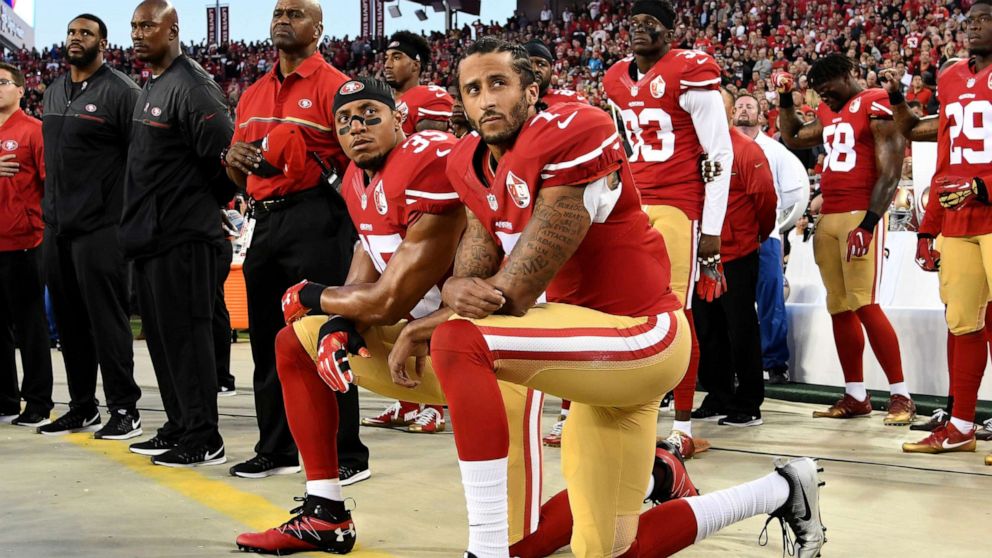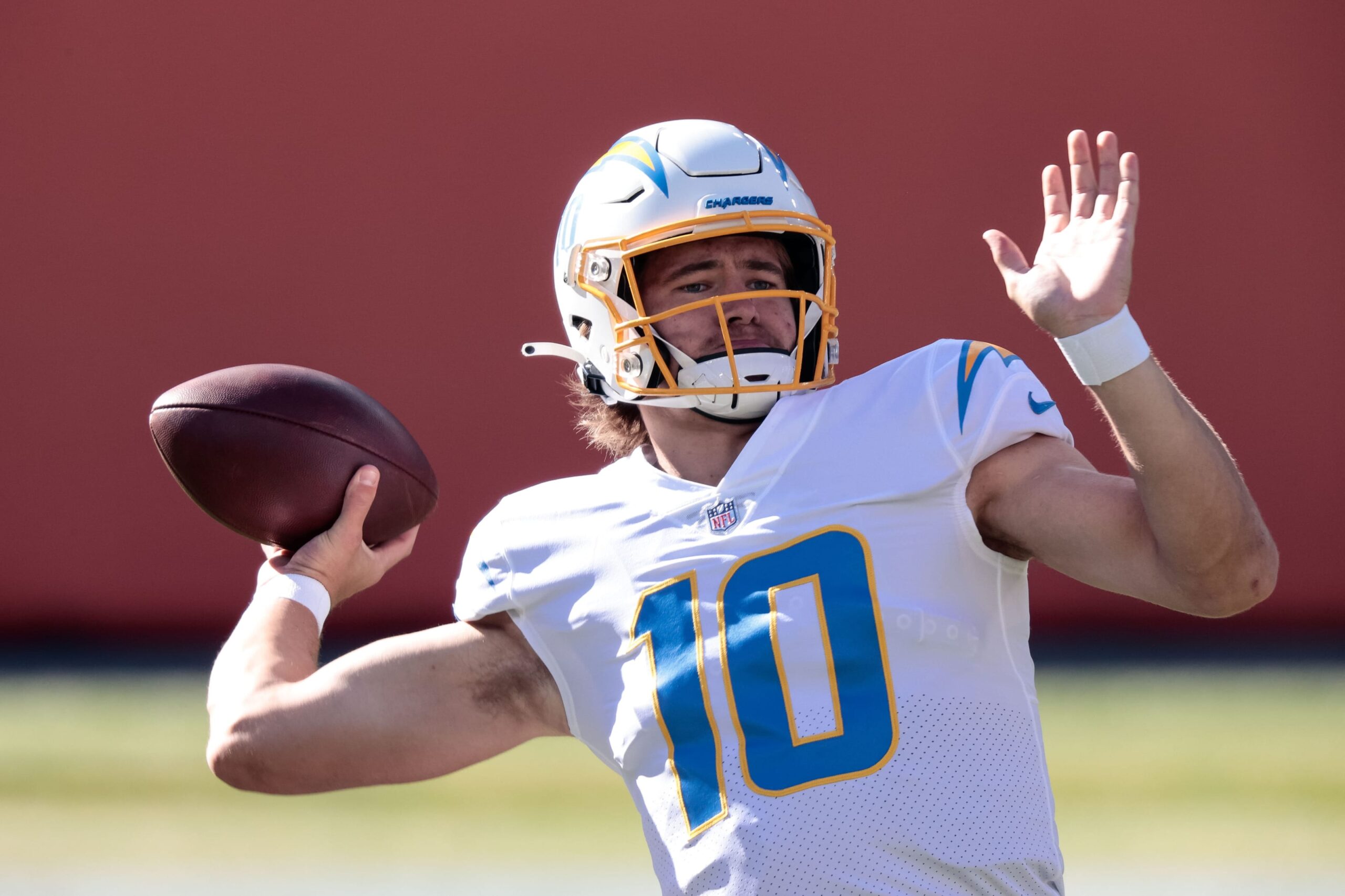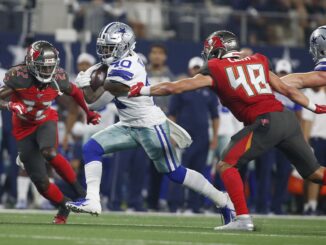
Colin Kaepernick entered the NFL in 2011 as a quarterback for the San Francisco 49ers. Halfway through the 2012 season, he took over as the starting QB and led his team to their first Super Bowl appearance since 1994. He was a very high-profile, young, Black superstar on the rise.
In the third preseason game of the 2016 season, Kaepernick began peacefully protesting against racial injustice and police brutality by kneeling during the national anthem. His protests generated significant media coverage from proud supporters and harsh critics, including the president. And then on January 1, 2017, Kaepernick played his last NFL game, closing out an abysmal 2-14 season with a narrow 25-23 loss to our Seattle Seahawks.
Kaepernick hasn’t been asked to put on an NFL uniform since.
At the time, the NFL regularly condemned any players who took a knee during the national anthem. In 2018, when the NFL’s anti-police brutality movement was at its peak, league officials threatened fines on players who “disrespected” the flag or the national anthem—only allowing protests behind closed doors.
But a lot has happened around the topics of racial injustice and police brutality in two years.
Especially in the last two weeks.
On May 25th, George Floyd, an unarmed Black man was murdered by police in Minneapolis, Minnesota. Video footage of his horrific death immediately went viral, clearly showing Derek Chauvin, a White police officer casually kneeling on Floyd’s neck for about nine minutes until he was dead.
In the days and weeks that have followed Floyd’s death, Chauvin was fired and charged with 2nd degree murder and the other three officers who failed to intervein have also been fired and charged with aiding and abetting.
More generally, the country has seen enormous #BlackLivesMatter protests held in every state and around the world, signaling a common sense of human rights, racial injustice, and shared experience. Even with actual oceans between us, people of all nationalities seem to understand the inherent wrongness of Floyd’s death and the racially-motivated circumstances that allowed it in the first place.
By numbers, this is the loudest public demand for action and reform in American history.
Individuals, organizations, corporations, and leaders of all kinds have been compelled to speak up, speak out, and acknowledge the need for cultural change. The words chosen, actions called for (or not), and platforms used have varied greatly, but the sentiments have been largely the same.
As the nation and world started making the obvious comparison of Chauvin kneeling on Floyd’s neck and Kaepernick kneeling during the national anthem, the NFL received mountains of negative coverage for both their thoughtless reaction to Kaepernick then and for their silent reaction now.
Then on Friday, June 5th, the Commissioner of the NFL, Roger Goodell, finally shared an official statement of support that included a long-overdue admission of the truth. That they were wrong.
“We, the NFL, condemn racism and the systematic oppression of Black People. We, the NFL, admit we were wrong for not listening to NFL players earlier and encourage all to speak out and peacefully protest. We, the NFL, believe Black Lives Matter.”
Goodell went on to recognize the critical role he plays within a sports league where 70% of its players are black.
“I personally protest with you and want to be part of the much-needed change in this country. Without black players, there would be no National Football League.”
But after the NFL condemned Kaepernick’s efforts on the field and remained largely silent about his exclusion from the league since, they have a lot of ground to make up in terms of reconciling the conduct of their past.
The question the NFL—and virtually all others who have pledged similar support to fight police brutality and racial injustice—must now face is… do we actually mean it?
While Goodell says the NFL was wrong not to listen before and now encourages players to speak out and peacefully protest, he failed to do the most obvious and overdue thing to cement the meaning of that admission; he didn’t mention Kaepernick’s name. No apology, no “wish we could go back and do it differently”—nothing to address the kneeling elephant in the room.
To me, this appears to be an intentional omission and I worry that it largely undercuts the NFL’s commitment to its own words.
But how do current NFL players feel about Goodell’s statement? A few have shared their own thoughts and reactions.
Detroit Lions safety Tracy Walker (whose cousin Ahmaud Arber was recently killed while jogging in an Alabama neighborhood) had supportive words to share with CNN’s Chris Cuomo: “It definitely means a lot, because that’s the first step. Us all uniting as one and trying to accomplish the common goals that we’re trying to reach for, which is equality.”
Houston Texans wide receiver Kenny Stills tweeted a more succinct response, “Save the bullshit.”
New Orleans Saints wide receiver Michael Thomas—who just a day before Goodell’s message participated in a group video with many other NFL players challenging the league to speak out against racism and the oppression of black people and acknowledge that black lives matter—tweeted “Well said Roger” in apparent approval.
Whether you think Goodell’s message was sufficient, insufficient, or somewhere in-between, I hope we see it tested and (ideally) withstand both internal and external pressure to reveal a perceptible shift in not just public-facing statements, but in thinking, policy making, and actions from within the NFL’s highest offices.
In addition to hiring more black coaches (currently only four) and general managers (currently only one), the obvious symbol of such a shift would be seeing Kaepernick hired by an NFL team.
Former Seattle Seahawks quarterback and Hall of Famer Warren Moon recently said that he believes the ideal landing spot for Kaepernick, if he wants to play again, is with the Hawks.
“If he’s willing to play football and put the time in that it’s gonna take to be a quarterback in the NFL, he definitely deserves an opportunity to get that because he was definitely misinterpreted four years ago with his stand.”
The Seahawks actually tried to bring Kaepernick in for a workout in 2017, when head coach Pete Carroll said he thought Kaepernick was still a “starter” in the NFL, but the workout was cancelled because he wouldn’t commit to standing during the national anthem, an NFL-enforced rule at the time.
And just recently, Carroll praised Kaepernick on his podcast by calling his protests “an extraordinary moment” and going on to say the public owes him “a tremendous amount” of respect.
Does Kaepernick want to play in the NFL again? I don’t know. He did a very high-profile workout last year that seemed to indicate his interest, but again, much has changed recently, and his role as a leader in the movement he helped launch may call to him in a way that football no longer does.
Should he desire to play again, however, I hope he does. Whether for the Seahawks, another team, or even from within the league offices, the NFL needs to find a way to raise Kaepernick up to make amends for the suppression it was all too comfortable administering until very, very recently.
In his statement, Goodell said, “As current events dramatically underscore, there remains much more to do as a country and as a league.”
What he should’ve said next, was “starting with Colin Kaepernick,” because if the NFL is truthfully dedicated to change, we need to hear his name called and see him on the field. It’s time.




